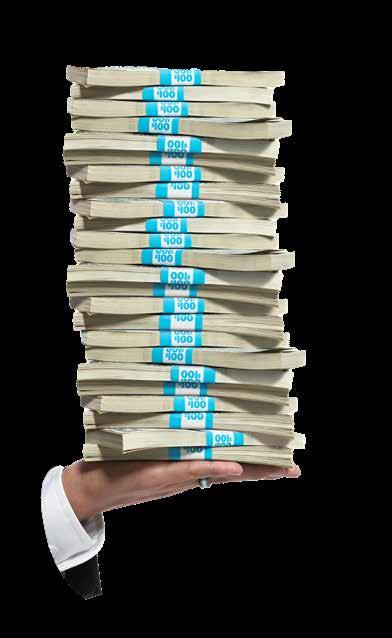
3 minute read
BANKER EXPECTATIONS
A banker is going to ask you for a set of documents. Depending on their process they will probably ask you to fill out an application, provide a balance sheet, projections for your operation, tax returns and/or income statements.

Advertisement
• A balance sheet is often called a personal financial statement or a PFS interchangeably. There are actually small differences in the two terms but for the sake of this article, a PFS, personal financial statement and balance sheet are the same. If you are one of the few that understand the difference between these documents most likely the rest of this article will be a waste of your time. What everyone should remember is that a balance sheet is a snapshot of an operation at a specific time. So, on month/day/year this is what I have and what I owe. That simple. I like to refer to this as the farmers transcript. All an operations success and failures will reflect somewhere on your balance sheet.
• Projections also are called a cash flow. If you are requesting a large line of credit, the banker may want you to do a monthly cash flow. A monthly cash flow put simply is an estimate of what you expect to spend each month and what you expect to make each month. A smaller line of credit, livestock note, or real estate note may only require an annual cash flow. This is the condensed estimates for the entire year. In my experience farmers really get hung up on this. Most of them think this is a do or die type of document. Let’s clear the air…... a projection is an estimate and will most definitely be wrong 100% of the time. You’re probably asking why do them anyway. The short, politically incorrect answer is that most bankers are bean counters and have no idea of how a real operation works. This gives them some type of roadmap to understanding what you are trying to accomplish with your business. The more acceptable answer is that each farmers operation is unique, and a projection gives the underwriters (bankers, analysts and committee members) a roadmap to understand why your tax returns and income statements look the way they do. Furthermore, it gives an idea of what to expect in the future as your operation expands.

The last item(s) mentioned is the tax returns and or income statements. Here is the statement every banker is already prepared to hear when they ask for these items. Farmer to banker “I can send you my tax returns but the are going to show a loss, I never show a profit.” I’m going to stop this thought right here. All bankers have heard this comment and we all understand how it works. I will save my opinion of some of those CPAs for a more personal and private conversation but at the end of the day the tax returns at a minimum show a “conservative” view of your operations performance. On a side note, if your CPA is recommending that you go out and buy a new tractor, trailer or load of sheep each time you show a profit in order to avoid paying taxes, it would be in the best interest of your operation to find a new CPA. Back to the topic at hand, an income statement and tax return, although different in presentation “should” have similar numbers in the same years. Some professionals may ask if you are reporting on a cash or accrual basis. I not going into the differences between the two. If you understand the differences, once again this article will probably not help you. If you don’t know which of the two your operation runs on, I feel safe in saying that you are running on a cash basis. Don’t get hung up on this term. Just know that you will need to provide a tax return or an income statement to your banker for the last three years of operation. An income statement is sometimes referred to a profit and loss or P&L statement. There is no difference in an income statement or a P&L. An income statement in is a condensed version of the farm’s ledger of activities for a specific time period. Most often it goes from January to December for a given year. It shows all credits and debits. I refer to this as the operations report card.
What You Should Expect From Your Banker
• He/she should be well versed enough to understand what an ewe, ram, lamb etc. is. They should also know basics of production…. what goes into your product (lambs) ie. grain, hay, meds and where you can sell them. This may sound obvious but remember not many people know about sheep. If they don’t understand the basics, it will make your discussions with them difficult and their ability to help you make accurate decisions near impossible.
• The banker should show an interest in your operation. A banker that does not ask a lot of questions and show legitimate interest on their face is going to spell problems for you down the road. An individual that is interested is one that keeps your operation at the forefront of their mind. A banker that is interested and understands the basics of your operation is one that will help you find ways to sell more lambs, increase your sell price and reduce your costs.
In the next section of this article, I am going to go over some basic terms you will see on your balance sheet and income statement.









